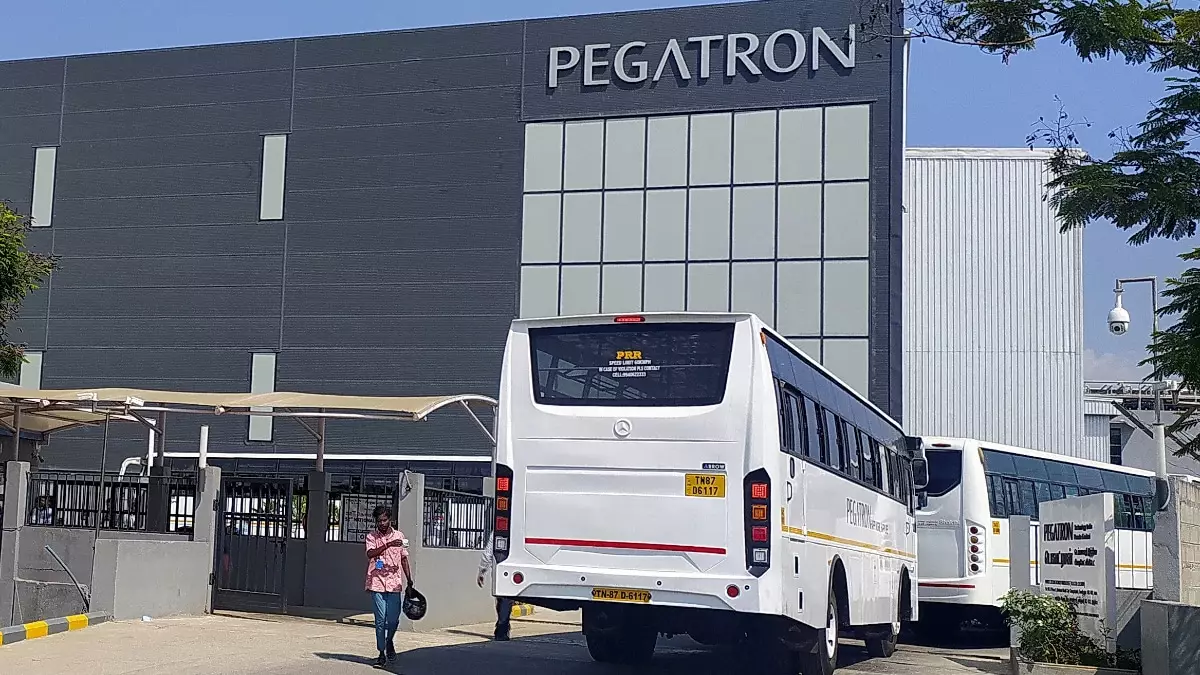The recent fire outbreak at Tata Group’s manufacturing facility in Hosur, Tamil Nadu, dedicated to producing components for Apple’s iPhone, has raised significant concerns regarding the potential ramifications on production, particularly as the festive season approaches. This incident, described by industry experts as critical, has not only disrupted the supply chain but has also highlighted the vulnerabilities in India’s nascent electronics manufacturing ecosystem.
The explosion of flames at Tata’s plant, which serves as the sole Indian supplier of essential components such as back panels, has resulted in an indefinite halt in production. This situation arrives at a particularly inopportune moment, as industry analysis anticipates a substantial surge in demand for iPhones during the upcoming Indian festive season. According to Counterpoint Research, projections indicate that Apple could sell around 1.5 million units of the iPhone 14 and 15 during late October to early November. However, estimates suggest that the fire may hinder Apple’s ability to fulfill up to 15 percent of this urgent demand.
Neil Shah, co-founder of Counterpoint, suggested that while there would be a discernible production impact of around 10-15 percent on existing iPhone models being manufactured in India, there are alternate strategies Apple could employ. One option includes importing essential components from suppliers outside India, such as those located in China, alongside reallocating existing export inventories towards fulfilling local demands.
This incident is not merely a production setback; it hands a jolt to Prime Minister Narendra Modi’s “Make in India” vision aimed at bolstering foreign investment into the local manufacturing realm. Apple’s diversification strategy, aimed at reducing reliance on Chinese manufacturing, was already put to the test previously with other fire incidents affecting suppliers like Foxlink and Pegatron. The recurring nature of such disruptions poses significant questions regarding the operational standards and safety protocols in place within Indian manufacturing plants, which are crucial for ensuring investor confidence.
Tata’s broader goals in electronics manufacturing, especially pertaining to iPhones, may also be at stake. The company is estimated to account for 20-25 percent of Apple’s total global iPhone shipments in 2023, a notable rise from the 12-14 percent contribution observed in the previous year.
In dealing with this disruption, stockpiles become critically important. The industry suspicion is that Apple suppliers typically maintain a stock of components sufficient for a three to four-week production window. However, insiders suggest that Apple may actually hold an eight-week supply. While this might cushion the immediate impact of Tata’s production halt, the question remains: how sustainable is this buffer in the long run? Should the outage extend, Apple may find itself compelled to initiate alternative production lines in other countries, primarily in China, or increase operational shifts to ensure a steady supply flow to its Indian manufacturing base.
While Apple’s proactive steps may mitigate immediate impacts, they underscore larger systemic issues within India’s electronics industry. Given the high stakes involved, authorities and companies alike must prioritize enhancing safety protocols and operational practices to fortify India’s position as a competitive electronics manufacturing hub.
As Tata embarks on ambitious plans to up its manufacturing game, including a new facility aimed at complete iPhone assembly scheduled to begin operation later this year, the question arises: how will this fire impact those plans? The operational continuity of its other existing facilities is critical, especially in the context of acquiring plants from Wistron and Pegatron to expand its footprint.
The road ahead for Tata Group and Apple will certainly be challenging as they navigate the aftershocks of this event. Reinforcing safety and operational standards must not only be a priority but a fundamental aspect of their strategy to cement their place in a competitive global electronics landscape. The integration of innovative safety measures and proactive crisis management is essential to prevent future incidents similar to the recent fire, ultimately ensuring that the aspirations of “Make in India” achieve their intended outcomes.

Leave a Reply